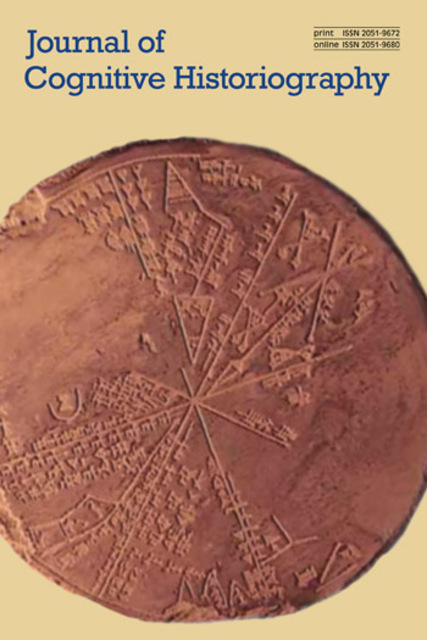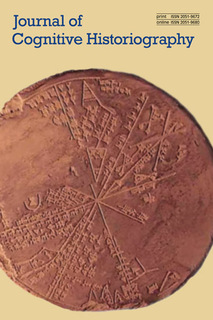Editorial, issue 9.1 "Emotion and Gender"
Irene Salvo
How to Cite:
Salvo, I. (2024). Emotion and Gender. Journal of Cognitive Historiography, 9(1), 5-6. https://doi.org/10.1558/jch.29416
At times of war and violence in more than one region, being able to write and publish in 2024 seems like a privilege. I open the present issue of the Journal of Cognitive Historiography with an acknowledgement of such privilege and with a message of solidarity to all scholars currently suffering adverse political conditions and being forced to stop researching. For those fortunate to read and reflect on cognition and culture, JCH 9.1 has to offer a special issue on gender and emotion, two articles in between neurobiology, emotion studies, and material culture, and two book reviews. The fil rouge among these elements weaves mainly emotion threads.
The place of emotion and the body in the field of cognitive historiography does not need much introduction. Both psychologists and historians have been interested in whether individuals of different sex and genders experience emotions differently. In the area of Classical Studies on Ancient Greece and Rome, the study of gender first, and of emotion a few decades later, is thriving. But the conjunction between the two themes is less so. It could be because, traditionally, gender and emotion have been considered historical subjects of lesser importance. In 1929, in A Room of One’s OwnVirginia Woolf sarcastically wrote: “This is an important book, the critic assumes, because it deals with war. This is an insignificant book because it deals with the feelings of women in a drawing-room.” (102) Luckily, the evaluation of scholarship based on the choice of the treated topic is losing ground, albeit only recently. The collection of articles here, for which I thank my co-editor Maria Gerolemou, highlights especially women’s emotion in Greek literature.
From the Archaic period to Late Antiquity, Lord-Kambitsch, Blanco, and Watkins Nattermann guide us through the lines of Greek poetry to rediscover gendered emotion, shame, and sexual desire (or the lack thereof ).
von Erenheim delves into past dreaming minds by assessing divinatory practices in the Greco-Egyptian Magical Papyri: a dream could be believed to possess answers for the ritual practitioner. Her article looks at ancient evidence against modern neurobiology as well as anthropology. The result is a psychological study of oracular techniques and their effects on the human brain and of how dreams are culturally situated, when narratives are shaped by individual emotion in conjunction with cultural practices.
Manzetti also reflects on the human capacity to experience emotion. She produces a meticulous piece of research at the crossroads of archaeology, digital tools, and emotionology. Although Greek and Roman antiquities remain in the background, we move in the 18th and 19th centuries to follow the steps and the emotional states of travellers embarking on Grand Tours in Italy and Sicily.
After a hiatus of two volumes, book reviews are back in JCH. One is again on emotions, love, this time, while the second explores Arian theology. I am honoured to introduce our new brilliant Book Review Editor, Francesco Buscemi, who will bring to the journal his expertise in socio-cultural modern and contemporary history, emotion and politics in particular. It is a delight to welcome him in the editorial team, and I am confident that readers will be pleased to see other historical periods receiving attention, beyond the antiquity specialization of the current Editor.
I close with a small but significant note. I am only now realizing, while I am writing this editorial, that JCH 9.1 boasts a women-only author line-up. It was not intended, so it happens by chance, but I am glad to offer to the scientific community a female version of the more usual all-male journals and edited volumes. Women still need to reclaim rooms of their own where they are put in the ideal conditions to write (if ideal settings for writing ever exist) – Virginia Woolf ’s book is alas resonating with many women today who lack financial stability and tranquillity of spirit. Joining the dots from where I started, I dedicate my editorial work for this issue to all the female researchers living in a country at war. When feeling powerless in matters larger than us, acknowledging someone else’s suffering is a starting point of resistance.


